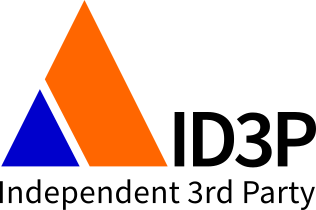October 16, 2017
Software Freedom Conservancy congratulates the Linux community for taking
steps today to promote principled, community-minded copyleft enforcement by
publishing
the Linux Kernel Enforcement Statement. The Statement includes an
additional permission under Linux’s license, the GNU General Public License
(GPL) version 2 (GPLv2). The additional permission, to which copyright
holders may voluntarily opt-in, changes the license of their copyrights to
allow reliance on the copyright license termination provisions from the GNU
General Public License version 3 (GPLv3) for some cases 1.
Conservancy also commends the Linux community’s Statement for reaffirming
that legal action should be last resort for resolving a GPL violation, and for
inviting noncompliant companies who work their way back into compliance to
become active participants in the community. By bringing clarity to GPLv2
enforcement efforts, companies can adopt software with the assurance that
these parties will work in a reasonable, community-centric way
to resolve compliance issues.
Conservancy believes that free and open source software communities can
use copyleft licenses to establish a
healthy framework for collaboration and cooperation. We also believe that,
when seeking compliance with such licenses, it is in the community and in
the public’s interest to bring people and companies into the community
rather than to alienate them or seek monetary gain. That’s the fundamental
premise of our Principles of Community-Oriented GPL Enforcement: yesterday’s violator can be tomorrow’s
valued contributor.
We co-authored and published the Principles with the FSF in 2015 to engage the broader
free and open source software community in a dialogue about how to best
achieve community-minded copyleft compliance. We believe that
GPLv3’s termination provisions better reflect the collaborative and
friendly process of GPL enforcement that Conservancy, FSF, and
gpl-violations.org have historically employed. Accordingly, we’ve
encouraged copyright holders in GPLv2-licensed projects to forgive violators
who cure violations in a timely manner in accordance with GPLv3§8, despite the stricter terms found
in GPLv2§4.
We are glad to see the Linux community express their formal alignment with
this position.
Some Linux sub-projects — such as Netfilter — have wholly endorsed and adopted the Principles, and we continue to encourage the entire Linux community to adopt all of the Principles fully. We want to continue the conversation about how to best promote, encourage, and enforce compliance, and we invite members from the Linux community to join our ongoing forum for public discussion on the principles-discuss mailing list. Conservancy has suggested to all Linux copyright holders participating in our GPL Compliance Project for Linux Developers) that they sign this new Linux Kernel Enforcement Statement to grant the additional permission.
In addition to coordinating a coalition of copyright holders, Conservancy itself is a copyright holder in Linux, as developers have also assigned Linux copyrights to our organization. As a copyright holder in Linux, Software Freedom Conservancy signs onto the Linux Kernel Enforcement Statement. We plan to continue our work enforcing GPLv2 for our own copyrights (and those of our coalition), and will always afford violators — as we have since our inception — the 60- and 30-day periods for violation cure in GPLv3, even though Linux’s default GPLv2 termination is much stricter and always permanent. We will continue to do this, even in defensive actions.
1. The additional permission in the Statement does not apply when
a company is defending itself from any legal claim, even one unrelated to GPL.
